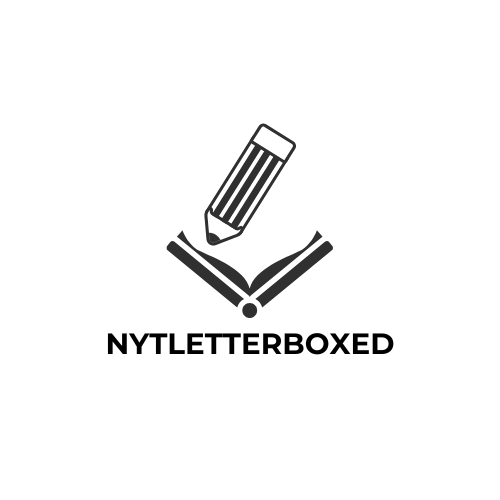
Master’s in Creative Writing: Transform Your Writing Career & Launch Your First Novel
As a writer and creative writing instructor, I’ve seen how a master’s degree in creative writing can transform talented wordsmiths into published authors. This advanced degree offers more than just improved writing skills – it’s a deep dive into the craft of storytelling crafted through workshops peer reviews and mentorship from experienced writers.
I’ll tell you why pursuing an MFA in creative writing might be your next big step toward a successful writing career. Whether you dream of publishing novels teaching at universities or working in publishing houses this degree can open doors you never thought possible. The intensive programs typically lasting 2-3 years combine theoretical knowledge with practical writing experience and often include opportunities to connect with literary agents and publishers.
Key Takeaways
- A Master’s degree in Creative Writing typically takes 2-3 years to complete and is available as MFA, MA, or specialized writing programs
- Programs offer different formats including traditional on-campus, low-residency, full-time, and part-time options to accommodate various student needs
- Core curriculum focuses on writing workshops, literary analysis, mentorship, and thesis development, with students spending about 40% of time in workshops
- Career opportunities after graduation include teaching positions ($65,000-85,000/year), publishing industry roles ($45,000-95,000/year), and freelance writing
- Top programs require strong writing portfolios, letters of recommendation, and maintain selective admission standards with faculty-to-student ratios around 6:1
- Financial aid options include merit scholarships, fellowships ($5,000-30,000/year), and graduate assistantships offering tuition remission plus stipends
Master’s in Creative Writing
A Master’s degree in Creative Writing is a graduate-level program focusing on advanced storytelling techniques, literary analysis, and professional writing development. The program combines intensive workshops with theoretical study to help writers master their craft.
Common Program Names and Variations
Master’s programs in Creative Writing appear under several titles:
- Master of Fine Arts (MFA) in Creative Writing
- MA in Creative Writing
- Master of Professional Writing
- Master of Arts in English with Creative Writing concentration
- Master of Letters in Creative Writing
- Writing workshops in multiple genres: fiction, poetry, creative nonfiction
- Literary criticism courses analyzing published works
- Craft seminars examining technical aspects of writing
- One-on-one mentorship sessions with published authors
- Thesis development resulting in a book-length manuscript
- Publishing industry workshops covering submission processes
- Teaching practicum opportunities for aspiring writing instructors
| Program Component | Time Allocation | Typical Format |
|---|---|---|
| Writing Workshops | 40% | In-person/Online |
| Literary Analysis | 25% | Lecture/Discussion |
| Mentorship | 15% | Individual Sessions |
| Thesis Work | 20% | Independent Study |
Types of Creative Writing MFA Programs
 Creative writing MFA programs offer diverse formats to accommodate different lifestyles and learning preferences. These programs combine intensive writing practice with professional development opportunities through various delivery methods.
Creative writing MFA programs offer diverse formats to accommodate different lifestyles and learning preferences. These programs combine intensive writing practice with professional development opportunities through various delivery methods.
Low-Residency vs Traditional Programs
Low-residency MFA programs combine online coursework with brief on-campus residencies lasting 7-10 days per semester. These programs include:
- Virtual workshops with 8-12 students meeting weekly via video conferencing
- Biannual campus visits for face-to-face intensive workshops
- One-on-one mentoring through email and virtual meetings
- Independent study periods between residencies
Traditional on-campus programs feature:
- Regular in-person workshops meeting 2-3 times weekly
- Daily access to faculty office hours
- Campus writing centers and resources
- Frequent literary events and readings
- Writing groups and peer collaboration opportunities
Full-Time vs Part-Time Options
Full-time MFA programs require:
- 12-15 credit hours per semester
- 2-3 years to complete
- Daily campus attendance
- Teaching assistantships or fellowships
- Completion of thesis within structured timeline
- 6-9 credit hours per semester
- 3-5 years to complete
- Evening or weekend classes
- Flexible scheduling for working professionals
- Extended thesis completion timeframe
| Program Type | Duration | Credits Per Semester | Class Format |
|---|---|---|---|
| Full-Time Traditional | 2-3 years | 12-15 | In-person |
| Part-Time Traditional | 3-5 years | 6-9 | In-person |
| Full-Time Low-Residency | 2-3 years | 12-15 | Online + Residency |
| Part-Time Low-Residency | 3-5 years | 6-9 | Online + Residency |
Key Skills and Learning Outcomes
A master’s degree in creative writing equips students with specialized skills in literary creation professional development. The program focuses on developing both technical writing abilities analytical competencies.
Writing Craft Development
Through intensive workshops seminars students master:
- Advanced narrative techniques: Plot structuring point-of-view manipulation character development
- Genre-specific writing skills: Poetry fiction creative nonfiction screenwriting
- Language mastery: Metaphor symbolism rhythm imagery
- Revision strategies: Self-editing developmental editing line editing
- Voice development: Style tone authenticity originality
- Research integration: Historical accuracy world-building factual incorporation
| Writing Component | Program Focus % | Practical Application |
|---|---|---|
| Creative Projects | 40% | Portfolio Development |
| Technical Skills | 30% | Craft Mastery |
| Research Methods | 30% | Genre Expertise |
- Manuscript evaluation: Structural analysis thematic assessment stylistic review
- Literary criticism: Contemporary analysis historical context theoretical frameworks
- Genre conventions: Market standards experimental approaches hybrid forms
- Publishing industry knowledge: Market analysis submission requirements editorial standards
- Peer review skills: Workshop facilitation constructive feedback professional critiques
- Research methodologies: Academic writing scholarly analysis creative research
| Analysis Component | Skill Development | Professional Application |
|---|---|---|
| Workshop Critique | Evaluation Methods | Editorial Assessment |
| Literary Analysis | Critical Theory | Academic Writing |
| Market Research | Industry Standards | Publication Strategy |
Career Opportunities After Graduation
A Master’s degree in Creative Writing opens diverse professional pathways in education publishing. Graduates possess specialized expertise in literary creation manuscript development & academic instruction.
Teaching and Academia
Teaching positions at colleges range from adjunct professor to tenure-track faculty roles. University creative writing instructors earn $65,000-85,000 annually teaching courses in:
- First-year composition programs
- Creative writing workshops
- Literature seminars
- Rhetoric classes
- Online writing courses
Academic administrative roles include:
- Writing center director
- MFA program coordinator
- Literary magazine editor
- Writers’ conference organizer
- Summer writing institute leader
Publishing Industry Roles
The publishing sector offers positions focused on content development acquisition. Key roles include:
| Position | Salary Range | Primary Responsibilities |
|---|---|---|
| Literary Agent | $45,000-95,000 | Author representation manuscript review |
| Acquisitions Editor | $55,000-85,000 | Book project evaluation publisher liaison |
| Development Editor | $50,000-75,000 | Manuscript revision author collaboration |
| Copy Editor | $45,000-65,000 | Text editing formatting oversight |
| Content Strategist | $60,000-90,000 | Digital publishing platform management |
- Literary magazine editor
- Book review writer
- Publishing house reader
- Digital content producer
- Freelance manuscript consultant
Top Universities Offering Creative Writing Masters
Elite universities across the United States offer distinguished Master’s programs in Creative Writing, combining rigorous academic standards with exceptional literary training. These institutions provide comprehensive curricula taught by accomplished faculty members who bring extensive publishing experience to the classroom.
Evaluating Program Reputation and Faculty
Leading creative writing programs demonstrate their excellence through specific metrics: faculty publication records student placement rates program funding faculty-to-student ratios. Columbia University’s program features 12 full-time faculty members who’ve collectively published 45+ books while maintaining a 6:1 student ratio. The University of Iowa Writers’ Workshop boasts 15 Pulitzer Prize-winning faculty alumni. New York University’s creative writing faculty includes 4 National Book Award recipients 3 MacArthur Fellows.
Program quality indicators:
- Publication records of recent graduates
- Literary journal affiliations (Paris Review Ploughshares)
- Available fellowships funding opportunities
- Writing center resources craft symposiums
- Visiting writer series frequency quality
- Alumni success in publishing teaching
Admission Requirements
Top creative writing programs maintain selective admission standards focusing on writing talent academic achievement. Standard requirements include:
Required materials:
- Writing portfolio (25-30 pages of fiction poetry or 40-50 pages of nonfiction)
- Statement of purpose (500-1000 words)
- 3 letters of recommendation
- Official transcripts showing 3.0+ GPA
- GRE scores (required by 60% of programs)
- Resume listing publications presentations
- Genre-specific submissions (poetry collections short stories novel excerpts)
- Writing sample formatting (double-spaced 12pt font standard margins)
- Recent work (written within 2 years)
- Cover letter detailing writing background goals
Financial Considerations
The financial investment in a Master’s degree in Creative Writing requires careful planning. Here’s a detailed breakdown of costs and potential funding sources.
Tuition Costs and Funding Options
Annual tuition for Creative Writing MFA programs ranges from $15,000 at public universities to $45,000 at private institutions.
| Program Type | Annual Tuition Range | Average Total Cost |
|---|---|---|
| Public University | $15,000 – $25,000 | $35,000 |
| Private University | $35,000 – $45,000 | $85,000 |
| Low-Residency | $25,000 – $35,000 | $55,000 |
Several funding options offset these costs:
- Merit-based scholarships covering 25% to 100% of tuition
- Federal loans with fixed interest rates of 5.28%
- Writing fellowships ranging from $5,000 to $30,000 annually
- Department grants tied to specific projects or genres
- Work-study programs offering $15-25 per hour
Graduate Assistantships
Graduate assistantships provide tuition remission plus a stipend between $12,000 to $25,000 per year. Common assistantship positions include:
- Teaching first-year composition courses (15-20 hours weekly)
- Supporting writing center operations (10-15 hours weekly)
- Editing literary magazines (12-18 hours weekly)
- Assisting faculty research projects (8-12 hours weekly)
- Managing department events (5-10 hours weekly)
- Health insurance coverage
- Faculty mentorship opportunities
- Professional development funds
- Access to conference travel grants
- Reduced-cost campus housing options
A Master’s degree in Creative Writing isn’t just another academic credential – it’s a gateway to transforming your passion into a profession. I’ve found that these programs offer invaluable opportunities to refine your craft network with industry professionals and build a sustainable career in the literary world.
Whether you choose a traditional or low-residency program the investment in an MFA can open doors to diverse career paths from publishing to academia. I believe the combination of intensive workshops mentorship and practical industry exposure makes this degree particularly valuable for serious writers.
The path might seem challenging but the rewards – both creative and professional – make it worth considering. If you’re ready to take your writing to the next level while building a career in the literary arts an MFA in Creative Writing could be your next chapter.
